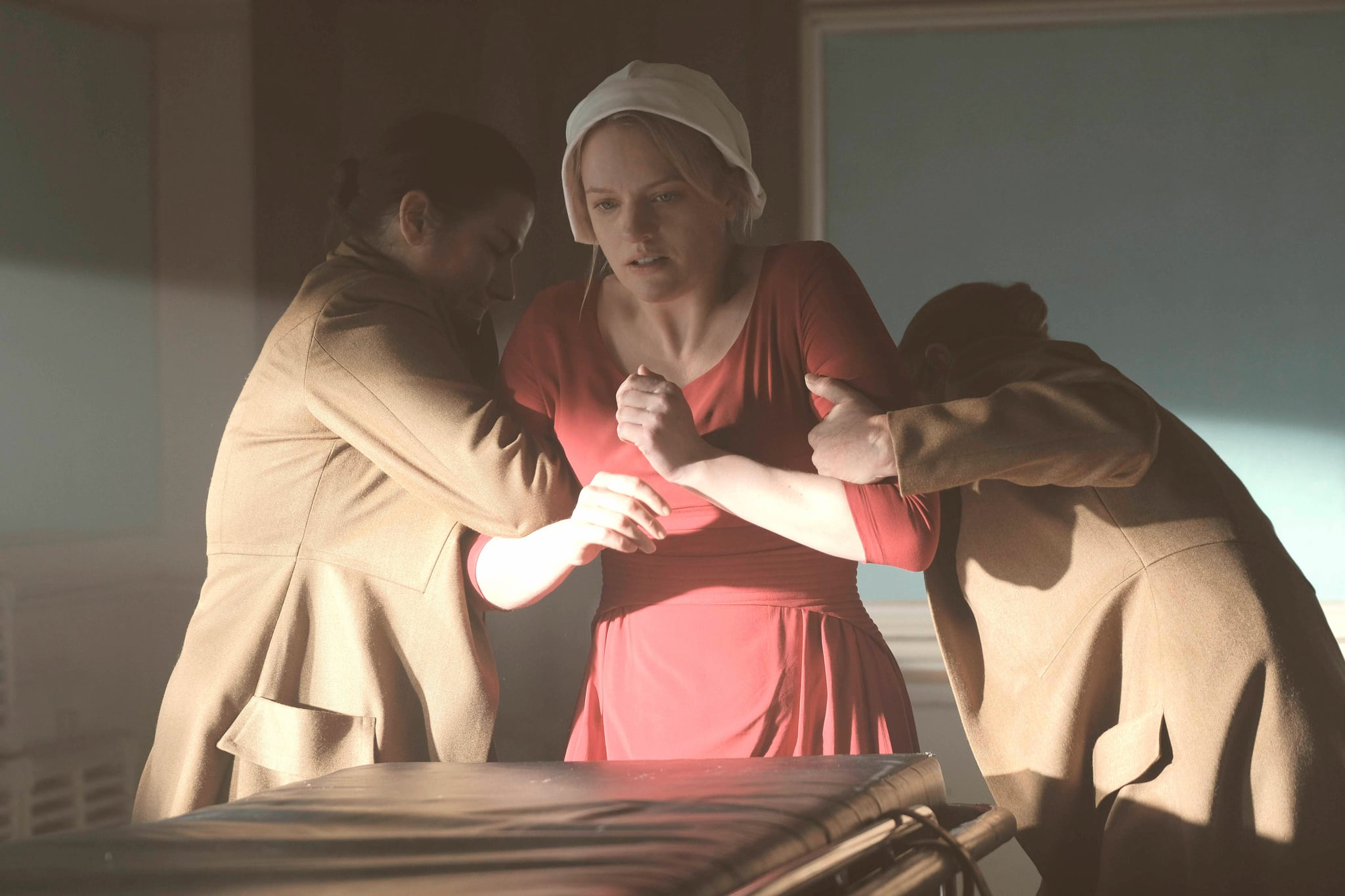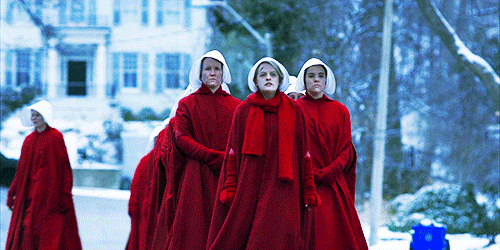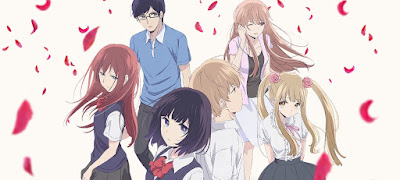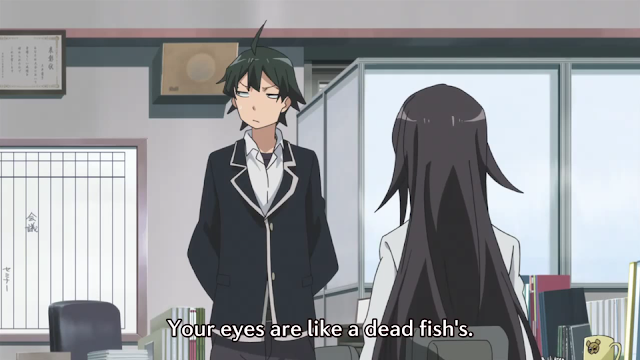The Handmaid's Tale Season 1 Review
The Handmaid's Tale is a TV series based on a novel of the same name by Margaret Atwood. It is set in the near future, in the land of Gilead, a dystopian totalitarian state which replaced the United States. Gilead is plague with environmental destruction and is facing rapidly declining birth rate. Most people are infertile, most pregnancies end up terminated halfway through, and many babies are born dead or deformed.
In an effort to repopulate the society, fertile women are forced to take on the role of 'handmaids', and sent off to elite couples to bear children for them. Every month during ovulation period, handmaids must take part in The Ritual, where they have sex with (READ: get raped by) their master while laying between the legs of their mistress.
The Handmaid's Tale is haunting, and it was personally upsetting to watch it as a woman. The idea of Gilead is every woman's greatest fear: a society where all of women's rights are stripped. The right to own a job, to own a bank account, and even the basic wish of wanting to be called their own name instead of their husband's family name is not respected. Books and magazines are burnt. And this is only the beginning of the end.
The Handmaid's Tale goes from a scene of two women freely dropping by a coffee shop after a morning jog, back to a reality where handmaids walk past a wall by the river, hung with dead bodies. These people were executed for various reasons, and their bodies are left in the public sphere to serve as a reminder to others.
The society of Gilead does not only strongly oppresses women, but also other minority groups. Biblical crimes are punishable by death, which means that homosexuality is completely intolerable in Gilead. The second half of Episode 3 should have come with a trigger warning, as it might be very upsetting for queer women to watch.



In an effort to repopulate the society, fertile women are forced to take on the role of 'handmaids', and sent off to elite couples to bear children for them. Every month during ovulation period, handmaids must take part in The Ritual, where they have sex with (READ: get raped by) their master while laying between the legs of their mistress.
 |
| Handmaids during one of their shopping trips to run errands for their assigned families. |
The Handmaid's Tale is haunting, and it was personally upsetting to watch it as a woman. The idea of Gilead is every woman's greatest fear: a society where all of women's rights are stripped. The right to own a job, to own a bank account, and even the basic wish of wanting to be called their own name instead of their husband's family name is not respected. Books and magazines are burnt. And this is only the beginning of the end.
The first season of The Handmaid's Tale excelled in one particular area, where it alternates the current storyline with scenes from the past - scenes we can relate to; our current normal reality. It is easy to dissociate yourself from the idea of an absurd dystopian society, to merely view it as fiction. However, The Handmaid's Tale portrayed brilliantly the gradual transition from the 'normal' society we are familiar with, to the unimaginable reality where we lose all control over our lives.
 |
| June and Moira during pre-Gilead days. |
The Handmaid's Tale goes from a scene of two women freely dropping by a coffee shop after a morning jog, back to a reality where handmaids walk past a wall by the river, hung with dead bodies. These people were executed for various reasons, and their bodies are left in the public sphere to serve as a reminder to others.
The society of Gilead does not only strongly oppresses women, but also other minority groups. Biblical crimes are punishable by death, which means that homosexuality is completely intolerable in Gilead. The second half of Episode 3 should have come with a trigger warning, as it might be very upsetting for queer women to watch.
 |
| Alexis Bledel was absolutely amazing in the show, as was Samira Wiley. I'm not saying I love women, but that's exactly what I'm saying. |
However, women and minorities are not the only groups affected under the dictatorship ruling of Gilead's government. Infertile women, and a number of men, are sent of to 'The Colonies' to clean up toxic waste and radioactive spill, sometimes without protective gear. Most people in the Colonies do not live long; their "nose falls off and their skin pulls away like rubber gloves".

One downside to this show is that some might be put off by the slow pacing, but I personally had no problems with it. The Handmaid's Tale is a story to be fully absorbed, and the pacing allows for more time for the right emotions to settle. It allows for more time to realize the gravity of the situations, and how fucked up they really are if you put them in real life context.

The Handmaid's Tale is not a show for everyone, and it is definitely not a light show. It is disheartening to watch - characters are brutally punished and even physically mutilated for minor disobedience. However, despite the terror inflicted upon its viewers, The Handmaid's Tale is, fortunately, not a whirlpool of misery.
Season 1 showed glimpses of hope and change, and the characters are always fighting back in their own subtle ways. Despite everything, they refuse to allow the worst of things to get to them. Even when trapped within four walls, mankind looks for light through the cracks in the walls.

Ending this review with my favourite quote from this season:
"If they didn't want us to be an army, maybe they shouldn't have given us uniforms."




I love this review
ReplyDeleteTHANK YOU BBGIRL ♡
Delete